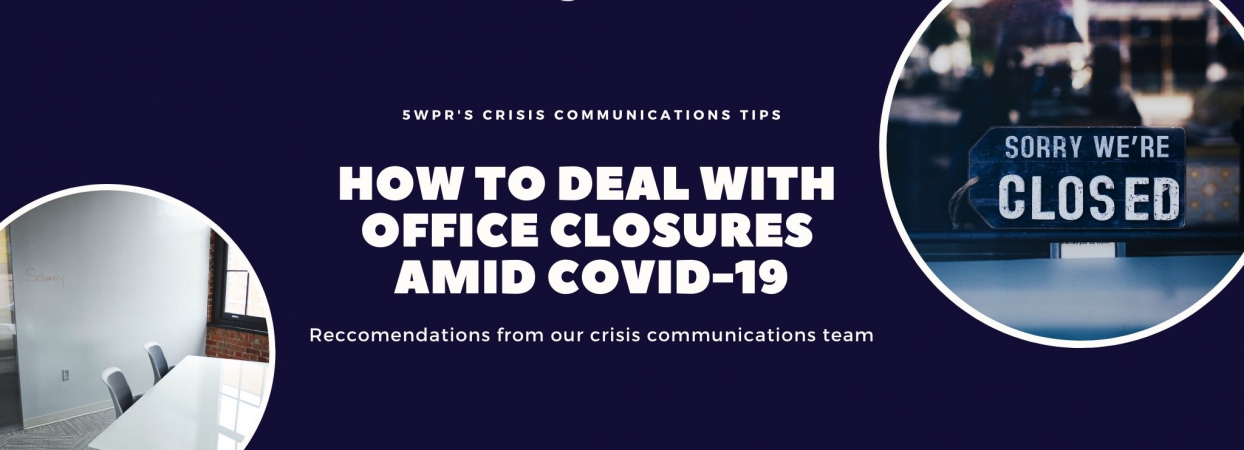Many business owners are grappling with having to close offices in response to the global COVID-19 outbreak. These unprecedented measures bring up many questions create many questions. For heads of companies looking for extra guidance during this time, we’ve compiled considerations for how to best handle and communicate office closures.
Be Transparent
Communication with employees is extremely important during this time. Be transparent with them about potential office closures, the reason why you’re closing, and when they can expect to be back in office. If you don’t have the answers to these questions, that’s ok. However, be sure to let them know this so they don’t feel they’re being left in the dark.
Be Visible
While employees are working from home, stay in contact with them. This might be a weekly e-mail or virtual meeting to update workers on any information or changes. It’s also important to stay visible as you’re the one they look to for leadership. Knowing that you’re present and working will keep employees motivated and company moral high.
Shift your Business Structure
Is there anything your business offers that can be communicated virtually? Gyms have shifted to offering virtual workouts for consumers. Other brands have shifted to creating and offering timely products, or donating their time and material to those in need. This will keep employees busy and the brand visible and relevant.
Restructure Practices
What took place in-office that now needs to function externally? You can use third-party platforms and apps to have phone calls forwarded directly to employees cellphones. Create accounts with video conferencing platforms which will allow employees to virtually connect for meetings more personably than over a phone call. Additionally, make sure your office mail and any important packages are forwarded to someone who will be able to receive and handle them appropriately.
Create a Plan
Include essential stakeholders in assessing the company’s current functionality, and how long the company can afford to continue with this work structure. Identify turning points on a timeline. When will hard financial and operational decisions have to be made? Begin preparing for operational downsizing or layoffs sooner rather than later, giving you more time to plan.
SPACs Are Back: What the 2025 Revival Means for Companies and Communicators
After several quiet years, special purpose acquisition companies are making noise again. According...
5WPR Shares Key Insights from CultureCon 2025: Taking Space, Telling Stories & Embracing Change
This month, the 5W team had the incredible opportunity to attend CultureCon 2025, the ultimate...
Beauty New York 2025: Highlights, Trends, and Brand Insights
The inaugural Beauty New York transformed Lower Manhattan’s Oculus into a space for creativity...




